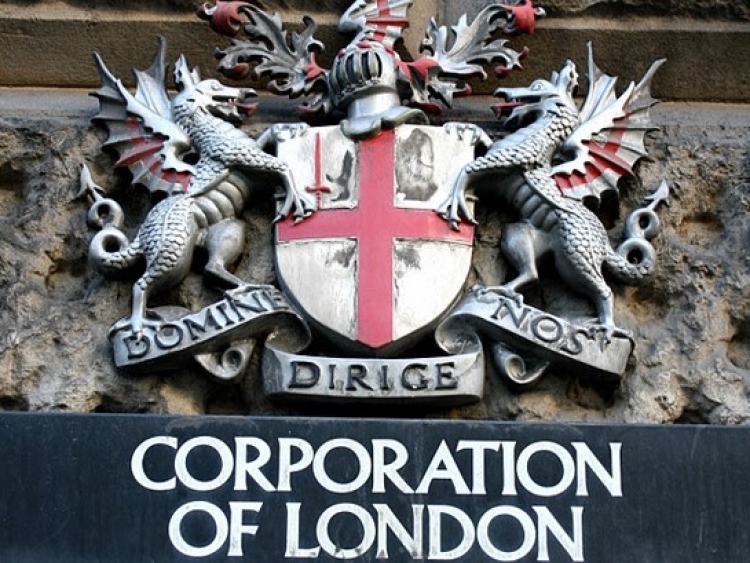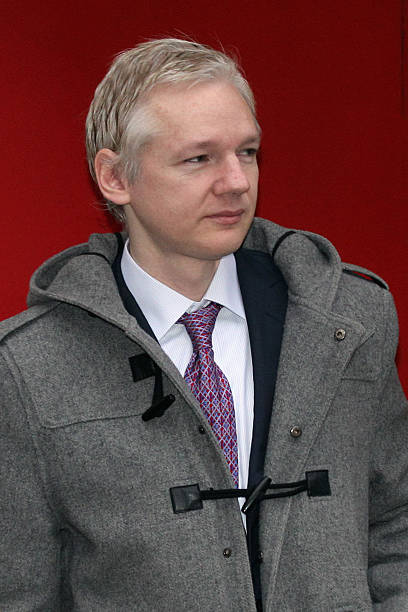
Monika Karbowska
Wednesday, September 9, 2020
On the third day we are in front of the door even earlier than the day before. I am confident. Jamie has lost his imaginary race. Deepa is holding the door for Rebecca Vincent who I will give the place to myself at noon. From 5:30 to 10:00 a.m. this gives us time to discuss the political situation in Europe, the history of the French Revolution and the Vienna system encircling France throughout the revolutionary 19th century. We question the persistence of the feudal system on the territory of Great Britain with this enclave of bankers and multinationals that functions as a mafia of private interests parasitizing the states and laughing at their sovereignty.
Around 9:30 a.m. a young blond girl dressed in black in the style of « the 80’s the revival » comes knocking at the door. The security guard on the stairs is the old man from Monday. She is a victim who has to testify in one of the real Criminal Court trials. The man sends her back to the street door where a few people are waiting. This is a far cry from the Monday crowds. The court doesn’t seem to be running at full speed, there are hardly any families coming. The woman comes back and tells him that she is being sent from one place to another and that she, as a victim, does not understand how the court can malfunction in this way. The second time she cries in front of us. Just coming here is trying, we understand it, this waiting outside is all the more unjust and incomprehensible.
At 10:00 a.m. the officer calls the Family: John, Sulivan, Eliot Shipton, Esther and Craig Murray enter in front of us. Then he points at me and my colleague. We don’t waste any time, this time we have left our phones and cameras at home. The passage through the ante-divulsive metal detection box is quick, the pressure on the employees is also much less, so the security guard is less severe. I run down the stairs on the 4th floor preceded by my colleague. When I arrive, the Family is already in room 10. We enter the corridor and a black, masked, white-clad security guard asks us « what room are you coming for the trial in?
I don’t lie to him by answering « Court Room 10 ». So he opens the sesame door for us. We enter naturally and sit in the 3rd row just above the Shiptons, Esther and Craig Murray, sitting in the 2nd row of the public gallery. I look around and quickly sketch out a sketch of the place.
The room looks like a twin room to number 9 but in fact it is different. Much smaller, darker, all in a muffled atmosphere, with subdued lights, dark red leather armchairs and dark wood furniture. The absence of windows makes the place confined and suffocating even more than in room 9, which still looks like a classroom or university. Here there is a heavy, ceremonious atmosphere, like in a church. The layout is reversed: The defendants’ box is on the left, the judge’s platform on the right. That’s good, I will be in a strategic position to see Julian Assange.
I observe what happens for a good 20 minutes. I end up believing that it is not a mistake, that we have been allowed to enter the Holy of Holies and that it is a just and honest decision. I am almost convinced that we will be able to spend the morning here. Those present are not paying attention to us except for Craig Murray who turns his head towards me and smiles. I have to say that for the past year I have ended up being part of the environment instead of being part of the Family.
So I realize that what I see is what should have remained hidden from the public eye. At the Woolwich Court in February, the public could see the whole room except what was under the balcony of the public gallery but could hear NOTHING without a microphone because the gallery was separated from the room with a shielded glass. That’s how I could SEE Julian Assange revolting, standing up, shouting, invectivating the present, talking to them, but I couldn’t HEAR anything. Here I am immersed in the real atmosphere because no glass separates me from the protagonists of the game.
And down here the atmosphere is very different from that of a trial. The actors of the game are talking to each other in a relaxed atmosphere. They all know each other, they all belong to the same gang, organization, what do I know, they laugh at each other, which contrasts with the heavy and serious atmosphere of the room. I can see Fitzgerald and Summers very well alongside Lewis and Clair Dobbin. Gareth Peirce moves between the tables, places each one and seems to give each one a role. The young Florence Iveson has spoken to friends at one end of the room and returns to her seat behind Lewis. Peirce’s assistants and Dobbin’s strong blonde collaborator sit in the last row just in front of the glass box and chat amongst themselves. I am surprised to see that Baraitser is already in his place overlooking the clerk’s office (also present and silent) while the room is in a recreational atmosphere – in a real trial it is the entrance of the judge that marks the beginning of the court hearing and the audience must stand up to greet him. No one stands up at Baraister’s passage because here the judge seems to be a part of the decor and not a trustee of the authority of the State and the Law. It is true that we are not in a state, but in a private organization, a merchant’s guild dating from the Middle Ages, and Baraitser is not a judge here in the Criminal Court. One wonders who she is, while it is impossible to find any information about her. Her family exists well and good: Michael Baraitser, Lisa Baraitser, Paula Baraitser are owners of various businesses to be seen on Beta Companies https://beta.companieshouse.gov.uk/search/officers?q=Baraitser but Vanessa seems to have no social existence other than the Assange case.
In the row perpendicular to Baraitser, to her right at the back of the room I can see Alastair Lyon, a brown woman with a green jacket and a red man. They are waiting quietly.
But the most surprising thing is in front of me and this is the part I should never have seen if I hadn’t had the opportunity to be there in front of these flesh-and-blood people, because the camera NEVER shows this part of the room. In front of me, perpendicular to the defendants’ box are 3 rows of armchairs in which Joseph Farell in red jacket, on the far right, and MC McGrath took place! Joseph Farell as a « Wikileaks ambassador » should not be here because he is a part of the trial! Furthermore, the speeches about « you can’t talk or visit Julian Assange » are immediately invalidated by Farell’s presence here in a recreational atmosphere before the resumption of lessons where Farell sees Assange every day for 3 weeks at 3 meters from him! MC McGrath who is an American hacker and computer freak is obviously part of the « family » of the « Wikileaks » project, but one cannot imagine that a lambda person like him could be present in the courtroom if this trial was a real trial!
And especially behind them I can see Stella Moris in a dark red dress chatting happily with her friend Jenifer Robinson in a scarlet red dress as well. (Robinson wore a green dress on the first day, like in February at the Woolwich and two increasingly vermilion red dresses on the second and third day, not a lawyer’s outfit then). To Robinson’s left sits a young red-haired man looking like Nathan Fuller, director of Courage Corp, an American company based in New York.
The two friends are laughing as they talk to each other, they seem happy to be together here and relaxed. Stella Moris’ behavior amazes me: while she has just played the grieving wives in her tearful storytelling at Paris Match and in front of the grid at 10 Downing Street, I see her here relaxed and satisfied with her performance. I see her not showing the slightest emotion in the face of the fate that awaits Julian Assange of whom she claims to be the beloved wife. Nor will she show any emotion, any compassion when Julian Assange enters the room. I see her attending Julian Assange’s trial as a show, a ceremony, in which she is a part of. If she had been his « family » then she should have been with us instead of the family, in the public gallery.
What’s more, I thought to myself, she is there every day laughing at him for hours on end and she tells the whole world her lie that she cannot see him and hasn’t seen him for months… Just as she had lied so much about the February 27th hearings when she didn’t speak to him and never encouraged and supported his revolt against the sacrifice inflicted upon him.
This time I really feel that I am witnessing not a trial but a sacrifice. A kind of ritual killing of what has been beautiful and good – the project of total freedom of expression but also the man Julian Assange endorsing this project in spite of himself. For Wikileaks is presented as something good – but is something bad sacrificed? Not only a beautiful animal was sacrificed in antiquity, a good man like Jesus was sacrificed, a BEAUTIFUL idea like freedom of expression is on its way to being sacrificed? Sacrificing someone ugly and bad would not make sense!
Certainly it was necessary to first smear Julian Assange with a planetary campaign calling him a narcissistic rapist, but Jesus too had first been mocked as an impostor and false prophet before he was killed. And I do not betray the thought of Julian Assange, because he himself mentioned Jesus as « the first sacrificed whistleblower » in a very premonitory speech in July 2009 in Germany.
I understand then that I find myself in the same situation as in those patriarchal families where the ritual of the « honor killing » is decided in a meeting: the family must sacrifice a member who has « failed » to keep the family secret, the cohesion and the power of the structure. As a feminist activist and a woman who had to fight for my emancipation, I understand only too well the power structure of such a sectarian family. One should never imagine that family members hate the sacrificed member: on the contrary, one loves him/her and that’s why one kills him/her. For his or her own good. Because he has no existence of his own, he is just a member of the family. To save the family by killing him is to save him, to save his soul.
Stella Moris proclaims that Julian Assange is going to commit suicide and that he has asked a Catholic priest for the absolution of the dying. First of all, extreme unction is really only administered to the dying by the Catholic Church and Julian Assange is alive and well, as I will see later. Secondly, to obtain a Catholic absolution one must still pass through the sacraments of confession, communion and … baptism, so one must still be a Catholic! And thirdly, the Catholic Church prohibits suicide, she cannot give absolution to someone who decides to sin by taking his own life! For me, a Polish woman raised in Catholicism, this storytelling doesn’t go at all!
This woman who lies publicly is then this Wednesday, September 9 at 10 a.m. in front of me in room 10 of the Old Bailey and she is preparing for an important part of a ceremony. Remembering her words about Julian Assange’s « suicide » I wonder if what she is announcing is not rather a murder. A ritual murder, a sacrifice: a man who made a mistake, who must be punished, an idea that must be killed. I shudder when I look closely at the woman’s black dress studded with small red fibers: the executioner, like the priest, wears red, the color of life and death, the color of passion.
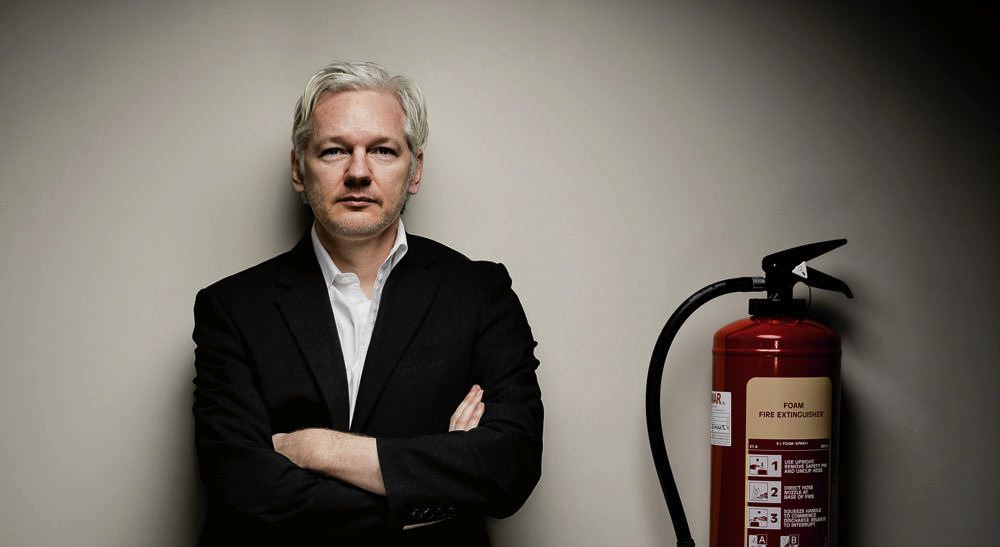
Suddenly there is silence and all eyes turn to the door at the back of the box of the accused: I see Julian Assange enter through this door at the back in front of me and cross the box, surrounded by two men in white, to a chair in the center. I can see him very well, I have never seen him so close, he is 5 meters away from me and behind only one glass. I am standing high up, I can see his head, his face and his upper body very well.
He is wearing a white shirt and a dark blue jacket as well as a black and red tie, the same fabric as Moris’ dark dress. I can clearly see the top of his head, his white hair is cut, but it is not quite coiffed. He is wearing this paper mask that is also ritually imposed on us in France. But if the mask hides his mouth, I can see his eyes. He is less thin than in February, less arched than on October 21. His gait is assured, he is not wobbly or dodelling as I could see on the Westminster videos. On the contrary, his entrance does not lack panache: paradoxically, he seems to be the master of ceremonies, he is the only one we are waiting for. As on February 27th he sets the tone by his behavior. As if without his agreement, without his adhesion, the sacrifice ceremony was not valid.
Assange arrives at the center of the box then swivels and takes off his mask. I see his face, his blue-grey eyes, his expression deeply sad but not downcast. His eyes have dark circles, not as deep as a year ago, but he has dark circles under them. His face is hairless, his features a little puffy and his complexion is as pale as the morning of February 26th and 27th. The expression on his tense lips reminds us of a child who would have been beaten and would hold back his tears.
Then the gallery door opens and the security guard calls us to get out. I don’t react, I let my colleague parley to save time. I watch Julian Assange take off his mask. He looks at me and our eyes meet. It’s over, they won’t let me stay. But then I get up and I can be seen from afar in my purple suit. I raise my right fist, my Polish rosary around my hand. Assange saw me.
I go out reluctantly. In the corridor the security guard is preaching to us at length. We committed a sacrilege, we lied to him, we had to go to room 9… Right away I apologize, I tell him that I regret that he could lose his job because of us, that we thought we had the right to come to room 10 because his colleague had announced it to us the day before. He reproaches me for having made a sign to the accused. Not at all, I recuse myself, I just adjusted the rosary that fell from my hand. He seems overwhelmed and says that he is going to discuss our fate with his boss, walkie-talkie in hand. We can’t hear what the chief is saying to him, but I take the opportunity to change my tone. I tell him that I represent a human rights association, that our fates in Europe are suspended at this trial. That it is illegal not to be able to see the face of the accused, a man locked up in dungeons like in the Middle Ages that no one can see, that we have written 10 requests for release and 3 medical reports, that Assange is being tortured and that we must testify about his state of health?
I don’t know if the private security company is sensitive to the issue of human rights, but its employee finally allows us to go to room 9. For 2 hours I have all the time I need to think about what I saw while observing the unfolding of the pseudo-judicial storytelling. Not once does the camera show Assange.
In room 9 there are even fewer people than yesterday. Heike Hänsel, a young man on his left, the man from the German embassy, the two German journalists, the brown woman in green, Hamish Hamilton, Rosie Sylvester – 8 people. Professor Rogers is interrogated as a witness on video. He recounts the Wikileaks saga according to him: Wikileaks publications would have proved that the United States did not control Afghanistan, while in Iraq Wikileaks would have added 15,000 civilian deaths to the estimate of the British NGO « Irak Body Count » – (I know the work of this NGO for having co-organized in 2005 the Conference of the Association of International Humanitarian Law in the French Parliament where the lawyer William Bourdon presented the estimate of 100,000 civilian deaths in Iraq. That is to say if Europeans did not wait for Wikileaks to criticize the invasion of Iraq by the United States).
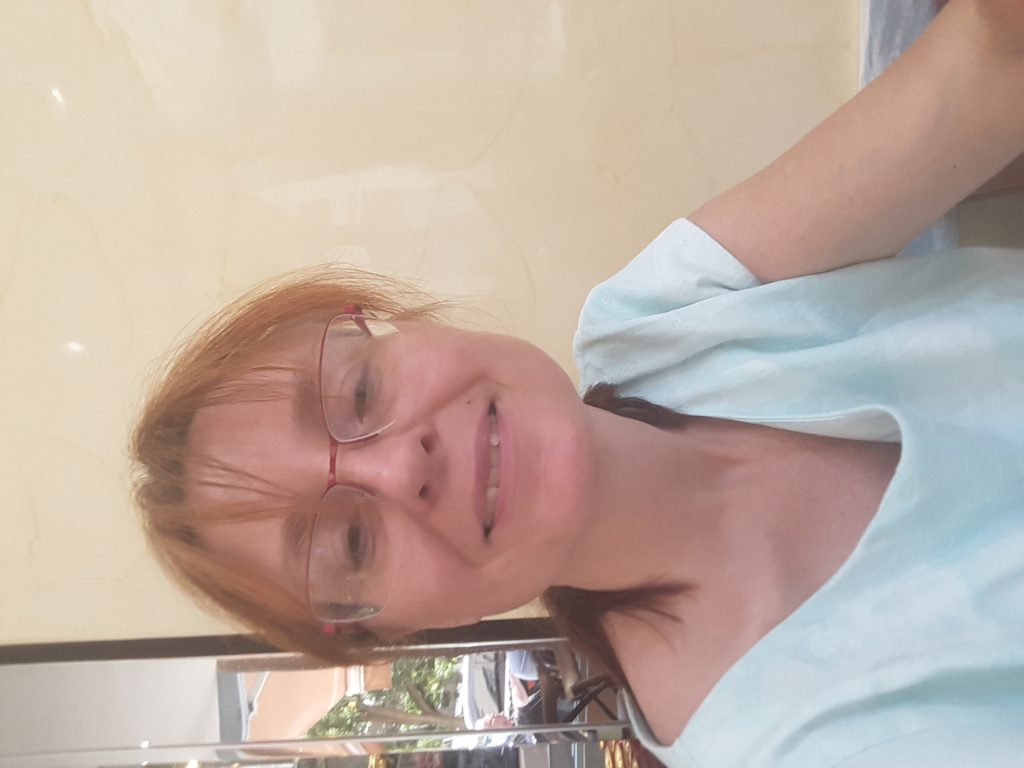
The question asked afterwards is « Does Julian Assange have a political opinion, he who was almost nominated for the Nobel Prize, was the herald of freedom of speech, and led speeches in Trafalgar Square in 2011 during the Occupy London movement? (How ancient these times seem in the light of the dictatorship we are living under…). Yes, the professor replies – Wikileaks is known in Afghanistan and Iraq for its political stance and Assange has been instrumental in the success of Wikileaks in bringing public attention to these wars. Wikileaks has been necessary for human rights, transparency, accountability.
Of course, only what is good and beautiful is sacrificed. Given the current state of Human Rights in this trial, it does not seem that Wikileaks has been very effective. In any case, I would have preferred that Wikileaks had never existed, that all the accused had the right to transparent trials and the support of human rights associations, that freedom of movement in Europe was guaranteed, that private militias did not arrest us in the streets or in the fields to accuse us of terrorism and did not force medical experiments on us… This is the real state of human rights, not in Iraq but in the heart of Europe, 10 years after Wikileaks.
Summers and Professor Rogers discussed at length Trump’s role in the liquidation of free speech, ignoring the fact that it was Obama, whose power was simultaneous with the emergence of the Wikileaks project, who initiated the lawsuit against Assange. The goal is to prove that Assange has political views, so the prosecution is politically motivated and therefore extradition should not be possible. I believe that since the City of London Corporation is not a state and is therefore not bound by the extradition treaty signed by Great Britain, any transfer of Assange from this territory to the United States can only be called a kidnapping or rendition.
The prosecutor asks the professor to explain what politics and journalism are and whether a journalist should have political opinions. On the continent of Aristotle, Erasmus, Locke, Rousseau the answer to the question « what is politics » is necessarily long and argued. But the public prosecutor demands that the professor answer yes or no and the debate turns short. I am tired of this debate between Americans who are flat as a desert without relief and whose history and experience of Europeans is excluded, while this strange meeting is indeed taking place on our continent and concerns us to the utmost. The prosecutor asks the question « Can we say everything? Be transparent even against the security of individuals »? But this debate seems to me to be a discussion about the sex of angels, the answer being « it depends on the context ».
Precisely, I must pay attention to one of the contexts mentioned. The prosecutor accuses Julian Assange of having said on August 8, 2011 that « the German invasion of Poland on September 1, 1939 is a lie constructed by Catholics ». I have never heard Asssange saying such stupidity, and if he have said privatly, the prosecutor have to prove it, the accused man being forbidden to speak and unable to defend himself. The prosecutor therefore accuses Assange of historical negationism, a serious accusation in Europe when it comes to facts related to the last world war that destroyed our continent. In the speech I am hearing here, this prosecutor wants to make the witness say that « one cannot say everything » and that a limit must be placed on the freedom of expression. This is indeed an important issue decided by the courts after contradictory debates and according to a different legislation for each European country.
For my part, as a Pole, I would be shocked if I heard someone say something as absurd as « the invasion of Poland by the Hitlerians did not take place on September 1, 1939, it is a lie of the Catholics » (and I am convinced that Julian Assange never told this sentence) but rather than seeking to forbid it, I would invite my interlocutor to come and visit Warsaw, a city destroyed by the Nazis, and the Auschwitz Memorial to see the evidence of the crimes of the Nazis committed in my country. If he is not convinced, the Russians, Belarusians and Yugoslavs will take it upon themselves to show him other numerous martyrdom sites of the populations of Eastern Europe that the Hitlerians had first placed on their list of peoples to be exterminated.
I cannot hear how Professor Rogers is getting out of the trap set by the prosecutor. The latest charge is « criminal justice or political persecution, » does the professor think that the charges against Assange are politically motivated? Or are the charges related to crimes? The professor answers, « I am not a lawyer but a political scientist. Then to the question, « Do you think there is evidence that Manning and Assange committed crimes, » he answers, « I read it in the accusation ». The mixture of « politics » and « crimes » is a very dangerous confusion for us. If making politics becomes a crime, then we will all be criminals tomorrow and there will be nothing left of our democracy that is already in near liquidation! The word politics comes from Polis, « city ». Whoever is in politics cares about the good management of a city. It is everything but a crime. It is a right and a duty! Besides, the level of philosophical debate seems to me very low in this room and the word given to the professor is very limited.
The antique air-conditioning spits its cold and stale air on me. I have seen enough. I dream of coming back to room 10 but only that seems too risky to me. I decide to leave, leaving it to my colleague to finish the work. When I go out into the corridor I tell the security guard that I leave my place to the other associations. The man then tells me « you won’t be coming back tomorrow ». I answer him that I understand the constraints of his job, that I do similar work in France, but that the respect of human rights concerns us all or we will all perish. And I add « we’ll see tomorrow ». Arriving at the bottom of the stairs, the old security guard does not want to let me out. He reproaches me for my passage in room 10 and puts on his gloves and tells me to stop. I feel vaguely threatened. I apologize but I add that it was necessary to see the accused who is entitled to a fair trial, a secret closed trial is illegal. I tell him about the war that the Americans are preparing in Europe using my country, Poland, against Belarus, secret prisons where people are tortured, that if Assange is extradited, we activists who are against the war policy of the United States are next on the list?
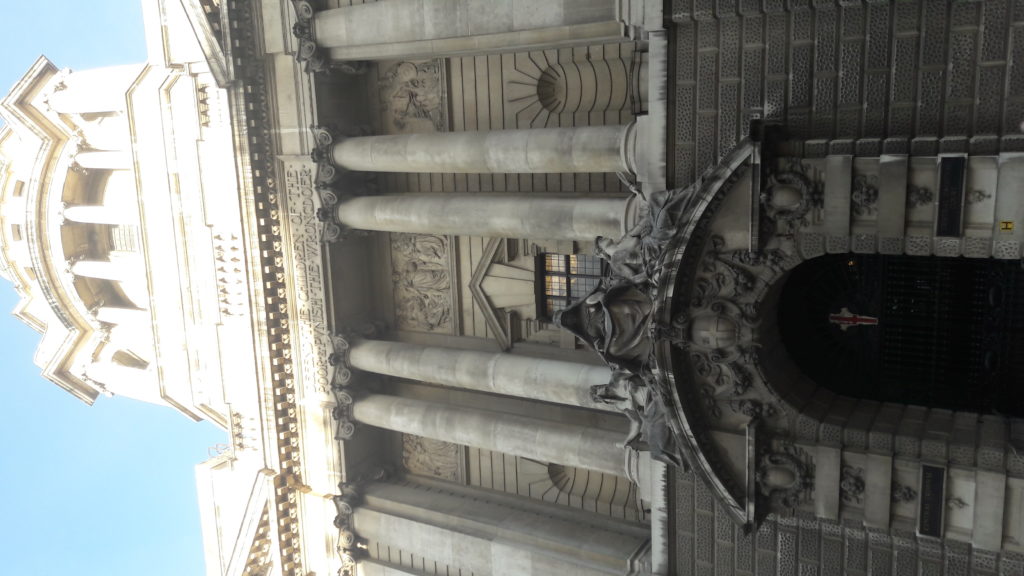
The man finally allows me to go out. I save myself while wishing him good luck in his work as a proletarian that I know only too well. When I get out, I tell Rebecca Vincent that I will not come back in the afternoon and that she can take my place. She is happy and that seems fair to me too.
My Polish colleague goes out for the lunch break and tells me that she was able to see Assange again through the slatted door of room 10. Jenifer Robinson in her scarlet red dress was explaining something to him with forceful gestures. Julian Assange smiled at her but did not seem convinced. Had he decided to revolt again?
The next day we were early in the Warwick Passage but Jamie and Sandra slept on cardboard boxes in front of the door and preceded us, very satisfied. But they made these efforts for nothing because at 10 am the trial is adjourned for 11:30 am. At noon the sessions of Thursday, September 10 and Friday, September 11 are cancelled. The covid is obviously found guilty but I wonder if Julian Assange, encouraged by our presence, has not yet sounded the revolt.
The time for revolt is more than necessary.
Extract from the request for release sent by Wikijustice Julian Assange to British and American parliamentarians
Julian Assange is being judged in a court that does not depend on the Ministry of Justice of Great Britain, but in a private place belonging to an enclave that is legally independent of Great Britain as a state and has no diplomatic link with the United States because the City of London Corporation, as a corporation, guild, association of businessmen is not a subject of international law and therefore cannot sign treaties with states. The extradition treaty of 2003 between Great Britain and the United States does not apply to this territory and cannot serve as a legal basis for the meeting that will take place from September 7, 2020 between Julian Assange and those who hold him captive and want to decide his fate.
Consequently, since the extradition request from the United States does not apply to this territory and cannot be processed in the private building that is the Old Bailey, Julian Assange must be considered on the territory of the City of London as a hostage and immediately returned to his dignity as a free man.
Moreover, the bankers and businessmen who own this building and manage this territory have no right to judge a man Julian Assange because they are not judges in the legal system of Great Britain. Moreover, their private interests are linked to large American, Chinese and British companies. Justice under their responsibility can only be tainted by bias. In no case can they be the guarantors of a fair trial. No private institution has the right to judge a man. It is the prerogative of sovereign states which must respect the Universal Declaration of Human Rights. Private institutions must be subject to the Law of States and respect the internal laws of each country. The City of London Corporation is an anomaly in the system of international law and has no right to usurp the prerogatives of sovereign states. Therefore, we consider that Julian Assange is not a prisoner in Great Britain awaiting extradition by the United States, but a hostage of a private organization, the City of London Corporation. An organization that holds a prisoner is a criminal organization and must be prosecuted. We call on the sovereign states to prosecute the City of London Corporation, of which Julian Assange is a hostage, so that Julian Assange may be released from this illegal confinement.
